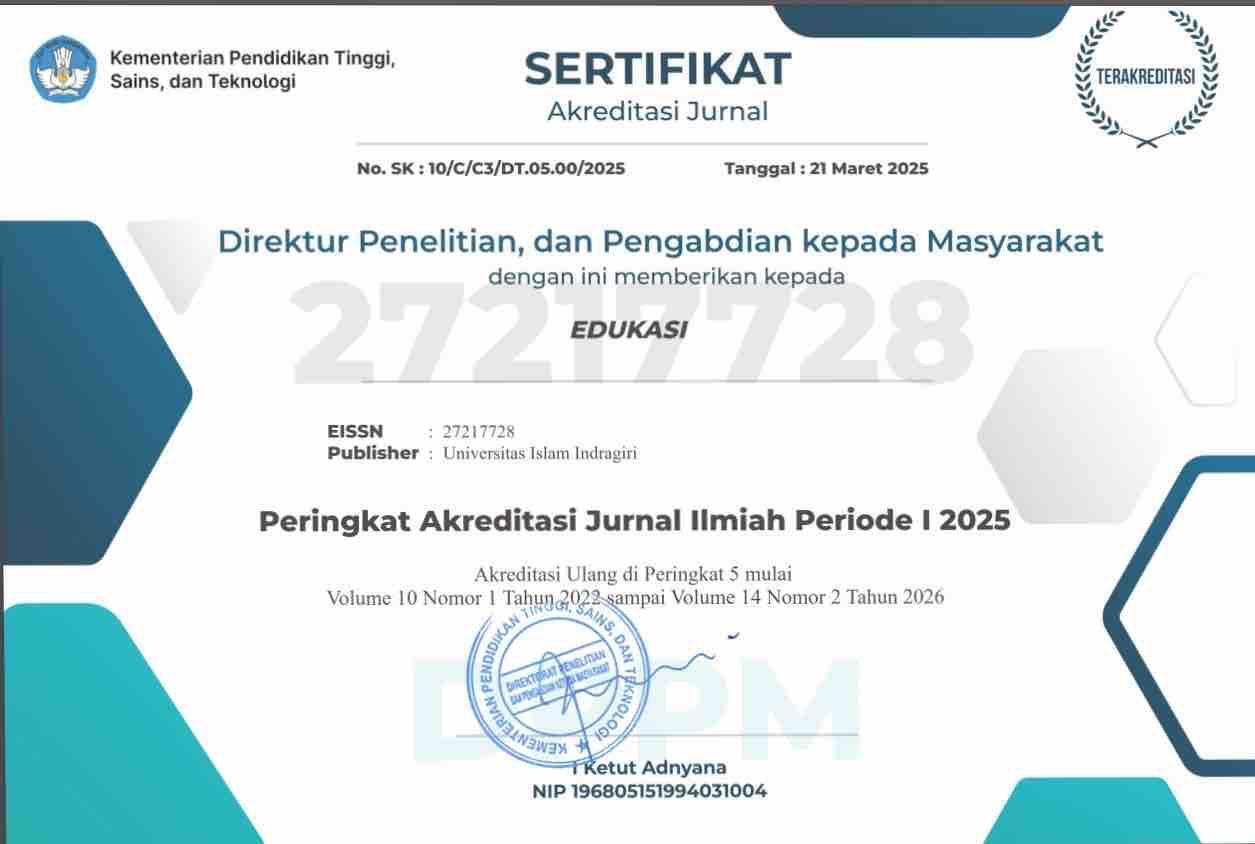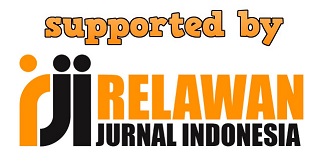Tantangan Pendidikan IPS di Era Masyarakat Madani
DOI:
https://doi.org/10.61672/judek.v10i1.1971Keywords:
Pendidikan IPS, Masyarakat MadaniAbstract
In the current era of globalization, technology plays a very important role. The flow of globalization certainly has positive and negative impacts on world society. To anticipate this impact, the role of social sciences education (IPS) is required because social sciences education is very closely related to social issues that occur in society. Apart from that, social studies education learning materials are closely related to the nation's social and cultural values. In solving social problems, social studies education must play an active role. One approach that can be used to solve this social problem is the reflective inquiry approach. Through the reflective inquiry approach, students are taught how to use social skills to solve factual problems that occur in everyday life and in society. Social studies education must be able to help students control themselves in life and apply these values to their behavior in society. Social studies education must be able to develop people into good citizens, familiar with all elements of the environment, wise and prudent in building relationships, and exploring and developing various forms of elements of the existing cultural environment. Social studies education not only emphasizes developing cognitive aspects such as the ability to master social science concepts or theories, the ability to think critically and analytically, or mastering social skills, but can also develop students' affective aspects, which include developing students' attitudes, values, and morals. The reflective inquiry approach will encourage students to use more critical and creative thinking to solve social problems and participate more actively in society. Because the learning material from social sciences education is very closely related to the nation's social and cultural values.
Downloads
References
Banks, J. A. (1990). Teaching Strategis for the Social Studies,Inqury, Valuing, and Decion Making. New York & London: Longman.
Barr, R., Barth, J .L and Shermis, S. S. (1978). The Nature of the Social Studies. Palm Spring California: ETC Publication.
H.A.R. Tilaar (2002). Pendidikan, Kebudayaan dan Masyarakat Madani Indonesia. Bandung: PT. Remaja Rosdakarya.
Jarolimek, J. (1977). Social Studies in Elementary Education. New York: Macmillan Publishing Company.
Masykur Hakim dan Tanuwijaya. (2003). Model Masyarakat Madani. Jakarta : Intimedia Cipta Nusantra.
Muhammad Numan Somantri. (2001). Menggagas Pembaharuan Pendidikan IPS.
Bandung: PT Remaja Rosdakarya dan PPS UPI.
NCSS. (1994). Curriculum Standards for Social Studies. Washington DC.
Parker, W dan Jarolimek, J. (1984). Citizenship and the Critikal Role of Social Studies.
Washington, D.C: National Council fot the Social Studies.
Rochiati Wiriaatmadja. (2002). Pendidikan Sejarah di Indonesia; Perspektif Lokal, Nasional, dan Global. Bandung: Historia Utama.
Suwarma Al Muchtar. (2001). Pendidikan dan Masalah Sosial Budaya. Bandung : Gelar Pustaka Mandiri.
Suwarma Al Muchtar. (2004). Epistimologi Pendidikan Ilmu Pengetahuan Sosial.
Bandung : Gelar Pustaka Mandiri.
Suwarma Al Muchtar. (2004). Pengembangan Berfikir dan Nilai Dalam Pendidikan IPS
. Bandung : Gelar Pustaka Mandiri.
Undang Undang RI Nomor 20 Tahun 2003 tentang Sistem Pendidikan Nosional.
Jogjakarta : Media Wacana Press.















